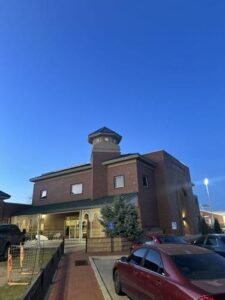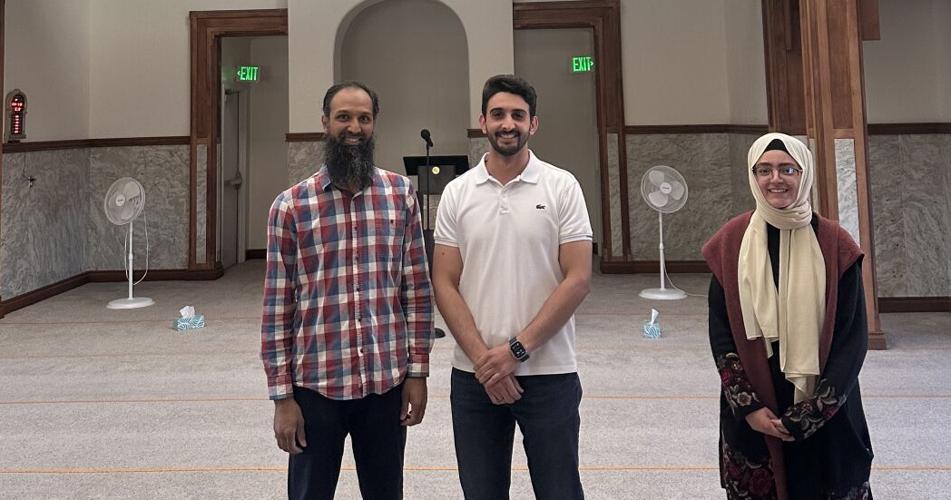In elementary school, Reem Mansy found a special place to spend her lunch hour during Ramadan: the library.
Mansy grew up in Stillwater, but her family is from Egypt. The fifth-year architecture student has watched and celebrated Ramadan for as long as she can remember.
“I am one of those Muslims who grew up in America but I don’t think American culture really took a toll on me,” Mansy said. “My family’s culture is just so deeply rooted in Egyptian culture that we’re just trying to preserve that.”
For Muslims, Ramadan is the most sacred month of the year. During the ninth month of the Islamic lunar calendar, they fast from dawn to sunset as an act of selfless worship to purify their minds and direct their attention to God. Islam teaches that fasting is done to show obedience to God, increase spirituality and strengthen moral discipline.
Throughout the day, they have five set prayer times that last between five to 10 minutes, and several of those are during business hours when Mansy is in class. But she doesn’t let that stop her.
This semester, one of the prayers falls during her studio class. Mansy excuses herself and finds a private room where she can take the necessary minutes to finish her prayers.
As the majority of the Stillwater community continues on with their day, Mansy leans on her community at the Islamic Society of Stillwater as they take this month to increase their connection with God and the Qur’an.
Sief Slati and Azmeen Rahman sit across the table from her as they share the importance of having a community that shares the same faith.
 The Islamic Center was the first place Slati visited in 2022 when he moved to Stillwater, where he met people whom now, he calls family. This includes his fiance, Mansy.
The Islamic Center was the first place Slati visited in 2022 when he moved to Stillwater, where he met people whom now, he calls family. This includes his fiance, Mansy.
The two got engaged in the fall and plan to have a traditional ceremony in the summer. The couple said they stay strong in their faith and fasting is not as hard as some people may think.
“I feel like a lot of people think Ramadan is a form of torture,” Mansy said. “But it is 100% not. It’s an opportunity to work on yourself and become a better person. It’s a time our heart softens.”
Mansy, Slati and Rahman said they do not dread Ramadan, in reality, they anxiously await. Slati said it is a time of joy and not eating does not interfere with that.
They break their fast when the sun sets, following the steps of Prophet Muhammad, with milk, yogurt or dates followed by Eisha, the night prayer.
Rahman, a doctorate student from Bangladesh, moved to the U.S. in 2017 with his wife. Together they have an eight-year-old, a four-year-old and a newborn. As a father, his priority is to instill the values of his faith and guide them through the traditions of Islam.
He brings his older kids to the center, and as he prays, they run around and watch the adults doing what they will do once they hit puberty. Rahman’s oldest daughter demonstrates interest in fasting though she is still too young. For a few days during spring break, she tried to fast, but once school was back, her parents didn’t let her continue.
For Rahman, Islam is not just a religion. It’s a manual for life. He said the Qur’an gives guidance to everything in their lives, whether it’s brushing their teeth, washing their hair or how to treat their spouse.
“For a lot of us, the goal is to keep learning more and more spiritually in every way,” Rahman said.
Text box:
61% of Oklahoma’s Muslim population have full-time employment in a variety of fields, including healthcare, education, engineering, nonprofits, finance/real estate and retail.
93% of registered Oklahoma Muslim voters voted in the 2016 presidential election.
64% of Oklahoma’s Muslim population have a minimum of a bachelor’s degree.
76% of Oklahoma Muslims volunteer in their community for at least 10 hours a month.
Muslims are approximately 1% of the Oklahoma population.
37% of Oklahoma’s Muslim population report having experienced harassment or discrimination in the past year.
Information from “Guide to Islam and Muslims in Oklahoma” second edition.

